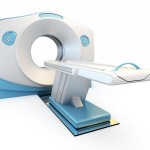Once upon a time, doctors did not tell the truth. They did not actually lie, they said nothing at all. They dictated to their patients what to do and what to take. Diagnosis and prognosis were coveted behind white coats and sterile walls. Sawbones were beneficent sheepherders and the patients, sheep.
Times change. Very few patients today will allow their physician to direct them without explaination. The answer to “jump” is not “how high,” but “why.” Patients are involved in their care and demand the meaning of tests, disease and diagnosis. Our health culture expects patients to make the final decisions regarding care. Patients are in charge and doctors part of their health care team. This is how it should be.
Understanding their patient’s need for information, physicians have become better at telling the truth. They detail information about tests, diagnoses and choice in therapy. What the medical profession does not supply, patients find through a host of ancillary sources. These includes friends, support services, books and of course the ubiquitous Internet. Social media is giving patients information and decision making tools never before imagined. Motivated patients and family can become experts in disease.
However, I am concerned about a key part of the health care conversation, which may be lost. We have become very good at telling about the truth. What about The Truth?
Much of the time when a physician teaches a patient, they explain in detail the choices available to treat the patient’s condition. Doctors discuss biology, process, side effect and benefit. At the end of the conversation, the patient is educated regarding choice.
What is lost in this method of selection is the advice of the individual with the most experience. Often only one has previously seen the disease and treatment, and has a long view about the future. This person has the professional maturity and objectivity to help choose. That person is the physician. Nonetheless, doctors are reticent to state, and perhaps patients are reluctant to hear, what years in the trenches can offer. This judgment is born from thousands of hours of trial, error, and observation, and can be invaluable. What may be the “best” choice. The Truth.
I would suggest that in order for the patient to make a decision, it can help to hear the doctor say, “In my experience, this is the best choice.” However, less and less are doctors willing to cross that line. Confusing patient autonomy with analytical ability, physicians fail to give patients firm guidance. Avoiding personal and legal culpability, doctors envelope the patient with choice and leave them in fog. Patients exit the exam room overwhelmed, never tapping the true wisdom of the physician.
We should strive for balance. Patient’s must be educated about their medical condition and made aware of treatment alternatives. Patients must understand they are in charge of their own health. They must make the decisions, and bare the responsibility.
However, physicians must give patients the benefit of their experience. This means, when all is done, not being afraid to say, “I would do it this way.” This clarity can be of great help in putting choices in perspective. This guidance must be offered in a tone that makes it clear the physician will support the patient’s final decision.
There is truth and Truth. The first is an academic exercise, and while complete it may be sterile. The second recognizes that serious decisions are being made that will affect real lives and futures. We should not be afraid learn from the doctor’s familiarity with health and disease. Such experience will help guide us in difficult times.







1 Comment